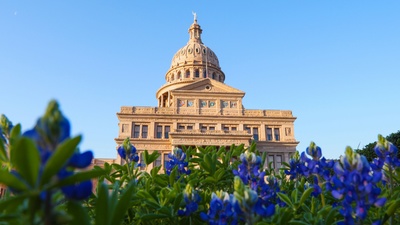
Employment & Labor
How States Are Combating AI Job Threats with Apprenticeships and Career Technical Education
September 16, 2025 | Lauren Johnson
August 26, 2016 | Bill Kramer
Progressive groups and labor unions are pushing for aggressive new mandates on employers’ relations with their employees. Activists have had limited, but growing, success at the state level advocating guaranteed paid employee leave for illness, vacation, and family issues in state legislatures. Furthermore, nine states legislatures passed minimum wage increases in 2014 with an additional four states passing wage increases through ballot initiatives.
When activists have failed to convince lawmakers or voters at the state level to pursue new mandates on employers, they have shifted their strategy towards counties and cities. For example, the cities of Jersey City, New York City, Portland (OR), San Francisco, and Seattle all require private employers to offer paid sick leave to employees. Additionally, Albuquerque, Santa Fe, San Francisco, San Jose, and most recently Seattle, Los Angeles, and Chicago, will have minimum wages that surpass the state and federal wage.
Employers complain that these local actions create a confusing patchwork of employee benefit requirements. About a dozen states have taken action to preempt some of these mandates and keep a single economic environment throughout the state. When a municipality passes an ordinance that conflicts with a state statute on the same subject matter, the state law preempts (and invalidates) the local ordinances.
A wave of states took this step during the 2013-14 legislative sessions, when Mississippi (MS HB 141), Florida (FL HB 655), Kansas (KS HB 2069), Arizona (AZ HB 2280), Indiana (IN SB 213), Oklahoma (OK SB 2013), and Alabama (AL HB 360) passed laws to preempt local ordinances that mandate employer benefits, minimum wages, or both, that exceed state and federal requirements.
In March, lawmakers in Montana passed a bill (MT SB 241) preempting localities from enacting local wage or employment benefit requirements that exceed state law. However, Governor Bullock (D) vetoed the bill.
Late last month, the Missouri legislature passed a bill (MO HB 722) that would stop localities from enacting their own minimum wage, paid sick leave, and plastic bag bans, although it is unclear whether Governor Nixon (D) will sign it (and, if he vetoes it, whether the legislature will override).
Finally, this week Michigan Governor Snyder (R) signed the “Local Government Labor Regulatory Limitation Act” (MI HB 4052), which preempts localities on a range of issues, including paid and unpaid leave, minimum wage, prevailing wage, benefit mandates where the employer would incur expense, E-Verify, ban the box, and union activity. The Michigan bill might be the most comprehensive state preemption bill enacted so far. However, it does not apply to any local ordinances enacted prior to this year.
State lawmakers are targeting local ordinances beyond mandates on employment. As mentioned above, Missouri passed a bill to preempt local disposable plastic bag bans, and courts and state legislatures have taken issue with local bans and restrictions on the oil and gas drilling technique hydraulic fracturing in Texas (TX HB 40), Oklahoma (OK HB 1395), New Mexico (NM HB 366), Colorado (CO HB 1119; SWEPI v. Mora County), and Ohio (Munroe Falls v. Beck Energy). States will continue to use their power to preempt local government laws as long as localities continue to pass ordinances not in keeping with statewide sentiments on business regulation.



September 16, 2025 | Lauren Johnson

July 16, 2025 | Sandy Dornsife

February 26, 2024 | Townsend Brown